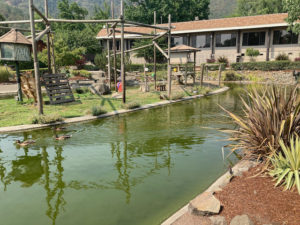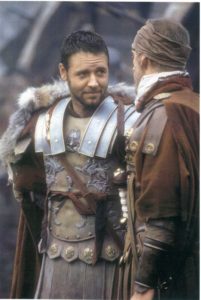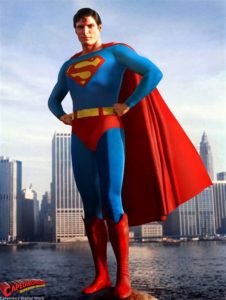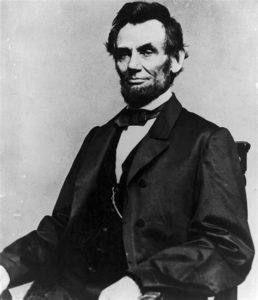“Do not be conformed to this world, but be transformed by the renewal of your mind, that by testing you may discern what is the will of God, what is good and acceptable and perfect.” (Romans 12:2)
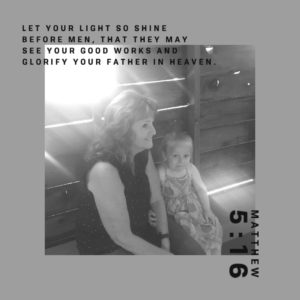 Recently I listened to an “unconversion” story. A man, whose name is Roger, accepted (or felt he did) Christ when he was 16, married a woman who was a Christian (or felt she was) when in their 20’s, got involved in the church, went through some marital problems, rejected their faith, and became atheists. It was a sad story, but one I am sure happens with some frequency and for the same reasons that Roger mentioned as he told his story.
Recently I listened to an “unconversion” story. A man, whose name is Roger, accepted (or felt he did) Christ when he was 16, married a woman who was a Christian (or felt she was) when in their 20’s, got involved in the church, went through some marital problems, rejected their faith, and became atheists. It was a sad story, but one I am sure happens with some frequency and for the same reasons that Roger mentioned as he told his story.
I would say that it boiled down to two main reasons for him. The main reason was that he had never met anyone who seemed to live as though he or she had a personal relationship with the Creator of the universe.  Secondly, he just could not reconcile the idea of a loving God and the violence that exists in the world and in the Bible. Both are common objections, but today I would like to share some thoughts on the first. The second will come up unexpectedly in a future devotion, I am sure.
Secondly, he just could not reconcile the idea of a loving God and the violence that exists in the world and in the Bible. Both are common objections, but today I would like to share some thoughts on the first. The second will come up unexpectedly in a future devotion, I am sure.
The Apostle Paul left us the admonition in Romans 12:2 and it leaves little doubt that our lives should change once we are filled with the Holy Spirit. In Roger’s “unconversion” story said that he had never met a “transformed” Christian. He believed that there were good Christians and bad Christians, good atheists and bad atheists, and a whole bunch of good and bad people in between. He said he had never seen a Christian who lived like he or she had a personal relationship with the great God of the Bible. He had never seen “miracles” that could not be naturally explained or seen lives that were radically different because of a spiritual relationship with Christ. Even though he had spent almost 30 years in the church, he had always had his doubts and finally gave up on ever finding convincing evidence that Christianity had any advantages over any other life choice.
 It was sad to listen to him. It was sad for him because so much of what he experienced was not my experiences in the church. But I was also sad because at times I understood what he was saying. If, as Christians, we do have a personal relationship with the Creator of the universe, our lives should be radically different, not only from what they used to be before we knew Christ, but from the rest of the world. Too often- they are not. When the Apostle Paul addressed the Christians in Rome he was encouraging them to not only act different but to be different. Conforming and transforming are totally different concepts and until we, as believers, get a hold of this principle of a Christ-filled life, many more will leave the faith for lack of evidence in individuals who call themselves Christians.
It was sad to listen to him. It was sad for him because so much of what he experienced was not my experiences in the church. But I was also sad because at times I understood what he was saying. If, as Christians, we do have a personal relationship with the Creator of the universe, our lives should be radically different, not only from what they used to be before we knew Christ, but from the rest of the world. Too often- they are not. When the Apostle Paul addressed the Christians in Rome he was encouraging them to not only act different but to be different. Conforming and transforming are totally different concepts and until we, as believers, get a hold of this principle of a Christ-filled life, many more will leave the faith for lack of evidence in individuals who call themselves Christians.
On the CRU site (formerly Campus Crusade) there is a wonderful page of testimonies (http://www.cru.org/how-to-know-god/my-story-a-life-changed.html) from people who have had their lives changed by Christ. Some of the stories are incredibly moving and others very dramatic, but all tell of lives left behind in exchange for new ones. The Roger in our story would say that he doesn’t deny that some people change, but that the same things happen  in all kinds of religions, clubs, and groups. He believes that Christianity doesn’t have a corner on the “changed life” market. His belief is that if someone is changed by Christ and someone is changed by being in the Lion’s Club there should be a difference between the two. One involves the great Creator and the other involves a bunch of guys that do good deeds for needy children. Yet, he says, being involved in groups seems to be as an effective life changer as being a Christian. He is right- in part.
in all kinds of religions, clubs, and groups. He believes that Christianity doesn’t have a corner on the “changed life” market. His belief is that if someone is changed by Christ and someone is changed by being in the Lion’s Club there should be a difference between the two. One involves the great Creator and the other involves a bunch of guys that do good deeds for needy children. Yet, he says, being involved in groups seems to be as an effective life changer as being a Christian. He is right- in part.
 There was once a man who had a very important meeting and needed some last minute cleaning done with his suit. He went to a store that said, “One-Hour Dry Cleaners.”
There was once a man who had a very important meeting and needed some last minute cleaning done with his suit. He went to a store that said, “One-Hour Dry Cleaners.”
“I need this in an hour,” he told the clerk.
She said, “I can’t get this back to you until Thursday.”
“I thought you did dry cleaning in an hour?”
“No,” she replied, “That’s just the name of the store.”
Too often “Christian” is just a name to believers, not a way of life. They might wear the signs of Christianity: crosses, gospel hats, Bible verse t-shirts,  but once you step inside their lives you find out that these are signs only. Not reality. Midway through the book of Acts believers took on the name Christian so they might be identified with the one they identified with.
but once you step inside their lives you find out that these are signs only. Not reality. Midway through the book of Acts believers took on the name Christian so they might be identified with the one they identified with.
Alexander the Great, one of the greatest military generals who ever lived, conquered almost the entire known world with his vast army. One night during a campaign, he couldn’t sleep and left his tent to walk around the campgrounds. As he was walking he came across a soldier asleep on guard duty – a serious offense. The penalty for falling asleep on guard duty was, in some cases, instant death; the commanding officer sometimes poured kerosene on the sleeping soldier and lit it.
The soldier began to wake up as Alexander the Great approached him. Recognizing who was standing in front of him, the young man feared for his life. “Do you know what the penalty is for falling asleep on guard duty?” Alexander the Great asked the soldier.
“Yes, sir,” the soldier responded in a quivering voice.
“Soldier, what’s your name?” demanded Alexander the Great.
“Alexander, sir.”
 Alexander the Great repeated the question: “What is your name?”
Alexander the Great repeated the question: “What is your name?”
“My name is Alexander, sir,” the soldier repeated.
A third time and more loudly Alexander the Great asked, “What is your name?”
A third time the soldier meekly said, “My name is Alexander, sir.”
Alexander the Great then looked the young soldier straight in the eye. “Soldier,” he said with intensity, “either change your behavior or change your name.”
We are Christians and there may be times that God is calling us to change our behavior or change our names. If our behavior leads men  like Roger to flee the faith, we should reconsider what our behavior is.
like Roger to flee the faith, we should reconsider what our behavior is.
There should be a difference between Christians and the rest of the world. I disagree, however, that no one lives that transformed life. I know many people who illustrate a renewed life, but Roger is right- it is not as typical as it should be.
Next week we will continue our discussion of Roger’s “unconversion” and how we can live lives that point others to Christ rather than to the world. Stay tuned!








